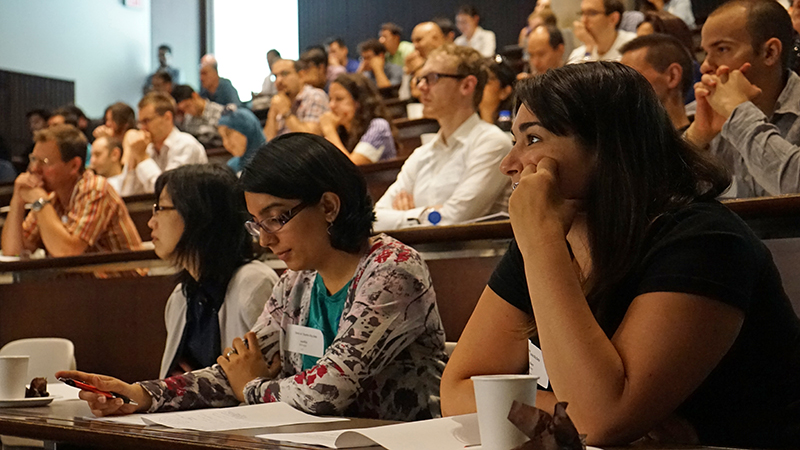July 7, 2014

What do astrophysicists, neuroscientists, computer engineers, and social media experts have in common? Data, and lots of it.
About 200 researchers, graduate students and staff from a wide array of fields across the University of Toronto joined forces last week for a one-day workshop on the topic of Tools to Tackle Big Data. The event aimed to unite investigators from across the university who share the common goal of leveraging big data to address high-impact problems in need of multi-faceted solutions.
“As academics, we are often called upon to help develop solutions for many societal and environmental problems that the world faces today, what some have called the ‘grand challenges’ in such areas as health, economic development, sustainability, and the environment,” said Professor Farid Najm, chair of The Edward S. Rogers Sr. Department of Electrical & Computer Engineering (ECE) in his opening remarks. “These problems often require more than just ‘point solutions’ to specific technical problems, but a synthesis of a variety of solutions and approaches from across the many disciplines of engineering and science. Grand ‘system level’ problems require multidisciplinary ‘system level’ solutions.”
Speakers from electrical and computer engineering, computer science, astrophysics, medical biophysics and industry partners from IBM highlighted many parallel initiatives employing big data and their adherent problems. For example, the datacentres we rely on to store and process this data deluge are physically huge, inefficient and energy-expensive. “I have been looking at this and working on this for a long time,” said Professor Cristiana Amza, who pointed out the growing gap between rate at which technology is improving and rate we’re collecting data. “The success stories have been scarce.”
ECE’s Professor Brendan Frey opened his talk by asking the audience to consider why each was there—what did they want out of the day, and what did they know or wonder about big data? Responses ranged from “What is it?” to concerns over privacy and security. “One of the big problems with big data is that if you’re not careful, you’re going to generate a lot of stuff that nobody cares about,” said Professor Frey. His talk focused on the data science he and his group use to decipher parts crucial in regulating the three-billion letter-code human genome.
Graduate students presented posters over coffee and lunch breaks, while attendees networked. Professor Tony Chan Carusone, ECE’s associate chair of research, connected engineers and computer scientists with those who could benefit from employing data tools to solve problems in their fields.
View the complete agenda and download each speaker’s presentation.
More information:
Marit Mitchell
Senior Communications Officer
The Edward S. Rogers Sr. Department of Electrical & Computer Engineering
416-978-7997; marit.mitchell@utoronto.ca